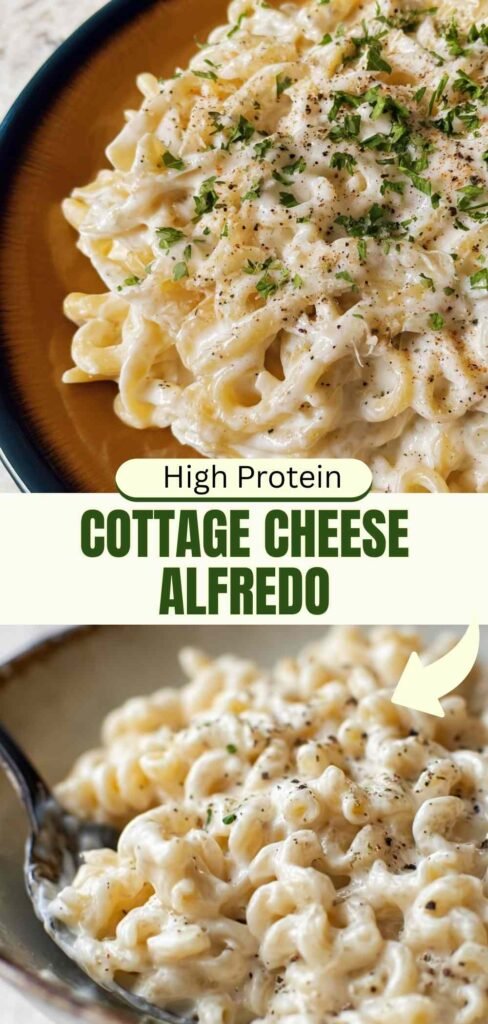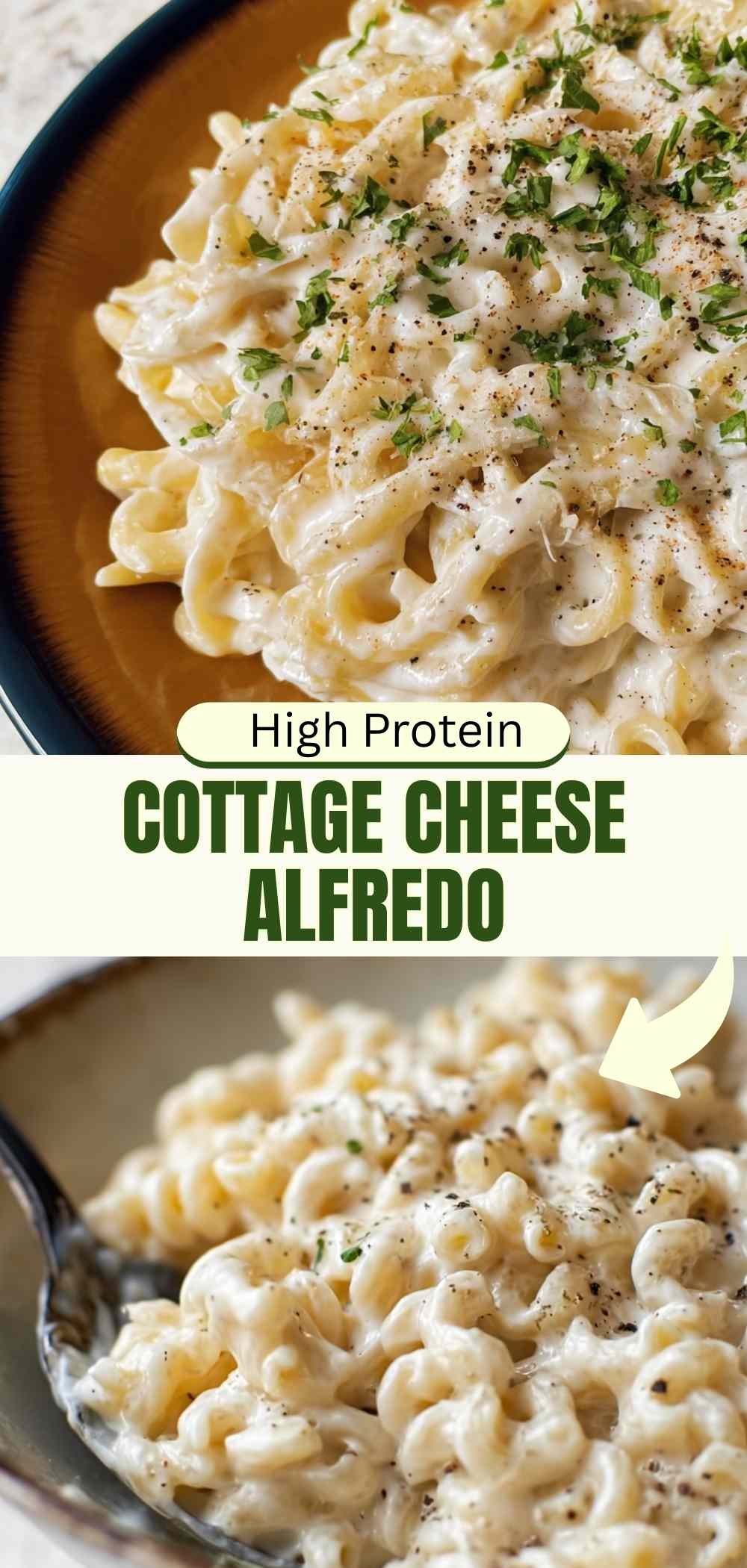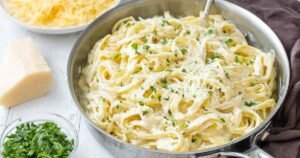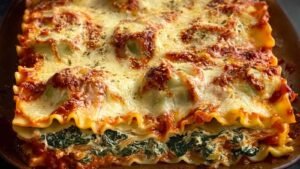Cottage cheese alfredo changed everything for me when I was desperately trying to hit my protein goals without giving up creamy pasta nights. This sauce tastes exactly like traditional alfredo but packs 25 grams of protein per serving instead of the measly 8 grams you get from heavy cream versions.
Three months ago, I was meal prepping for another grueling week of “healthy” dinners when my 16-year-old son Marcus wandered into the kitchen. He watched me dump cottage cheese into the blender and actually said, “Mom, please tell me we’re not eating weird protein slop again.” I made him a deal – try one bite, and if he hated it, I’d order pizza. Not only did he finish his entire bowl, but he texted his friends about it. When your teenager voluntarily promotes your cooking, you know you’ve struck gold.
The magic happens when you blend full-fat cottage cheese with real parmesan and just enough cornstarch to create that silky texture. Even my husband, who claims to hate cottage cheese, asks for seconds. This one’s a keeper!
Table of Contents
Ingredients for Cottage Cheese Alfredo
After testing this recipe 12 times to get the ratios perfect, I’ve learned that ingredient quality makes or breaks this sauce. My go-to cottage cheese is Good Culture because it blends smoother than any other brand I’ve tried.
- 8 oz pasta (I prefer penne or rigatoni – the ridges grab sauce better than smooth shapes)
- 1 cup cottage cheese (full fat/whole milk only – low-fat creates a chalky texture)
- ¾ cup whole milk (never use skim – you need the fat for proper emulsification)
- ½ cup freshly grated parmesan cheese (pre-shredded contains anti-caking agents that affect melting)
- 1 teaspoon cornstarch (crucial for preventing separation when heated)
- 1 teaspoon garlic powder (I use this over fresh because it distributes more evenly)
- ½ teaspoon dried basil
- ½ teaspoon dried oregano
- Salt to taste (start with ½ teaspoon, then adjust)
- Black pepper to taste (freshly cracked is worth the extra effort)
Pro tip: Let your cottage cheese sit at room temperature for 15 minutes before blending. In my experience, room temperature dairy creates a silkier sauce with zero graininess. I learned this the hard way after my first attempt resulted in a lumpy disaster that even my food processor couldn’t save.
Step-by-Step Instructions
I recommend reading through all steps before starting since timing matters for the smoothest results.
Step 1: Bring a large pot of water to a rolling boil and salt it generously (it should taste like seawater). Cook pasta according to package directions until al dente. Before draining, reserve 1 full cup of the starchy pasta water in a measuring cup – this liquid gold will save your sauce if it gets too thick.
Step 2: While pasta cooks, add cottage cheese, whole milk, parmesan cheese, cornstarch, garlic powder, oregano, and basil to your blender. Blend on high speed for 90 seconds until completely smooth – you shouldn’t see any cottage cheese curds remaining. The mixture should look like thick cream.
Step 3: Pour the blended mixture into the same large pot you used for pasta (less dishes to wash!). Place over the lowest heat setting your stove offers. Heat gently for 5-7 minutes, whisking frequently, until steaming and slightly thickened. Never let it bubble or the dairy will curdle.
Step 4: Add the drained pasta to the warm sauce and toss vigorously for 30 seconds to coat every piece. If the sauce seems thick, add reserved pasta water one tablespoon at a time until you reach a silky consistency that coats the pasta without being soupy.
Step 5: Remove from heat and season with salt and freshly cracked black pepper. Taste and adjust – the sauce should be well-seasoned but not salty. Serve immediately in warmed bowls topped with extra parmesan, fresh parsley, and another crack of black pepper.
What to Serve with Cottage Cheese Alfredo
This creamy, protein-rich alfredo pairs beautifully with fresh vegetables and complementary flavors that add texture and nutritional balance.
Roasted Broccoli: The slight char and crispy edges provide perfect contrast to the creamy sauce while adding fiber and vitamins that balance the rich pasta dish.
Caesar Salad: A fresh, vibrant salad with crisp textures cuts through the richness of the alfredo, creating a restaurant-quality meal at home.
Cottage Cheese Flatbread: Perfect for sopping up every last drop of that protein-packed sauce – because waste not, want not! This high-protein bread keeps the protein theme going strong.
Grilled Chicken: Adding 4-6 oz of seasoned grilled chicken transforms this side-friendly sauce into a complete high-protein main dish with over 40g protein per serving.
Steamed Asparagus: The bright, slightly bitter notes of asparagus provide an elegant contrast while adding folate and fiber to round out the meal.
Storage & Serving Tips
Store leftover cottage cheese alfredo in the refrigerator for up to 3 days in an airtight container. The sauce will thicken as it cools, so save some of that reserved pasta water in a separate jar for reheating.
To reheat, transfer pasta to a skillet over low heat with 2-3 tablespoons of the reserved pasta water. Heat gently while stirring until warmed through and creamy again – this takes about 3-4 minutes. Pro tip: Never microwave this sauce at full power or it will separate into an oily mess. Use 50% power in 30-second intervals if you must use the microwave.
This versatile sauce transforms into completely different meals throughout the week. I’ve drizzled it over grilled chicken breast, used it as a dip for roasted vegetables, and even spread it on my cottage cheese flatbread as a white sauce base. My kids love it over baked sweet potato “fries” for a surprisingly delicious combination.
Conclusion
This cottage cheese alfredo proves that healthy eating doesn’t mean sacrificing flavor or comfort. With triple the protein of traditional alfredo and ingredients you probably already have on hand, it’s destined to become your new weeknight dinner hero. Give it a try and watch your family ask for seconds!
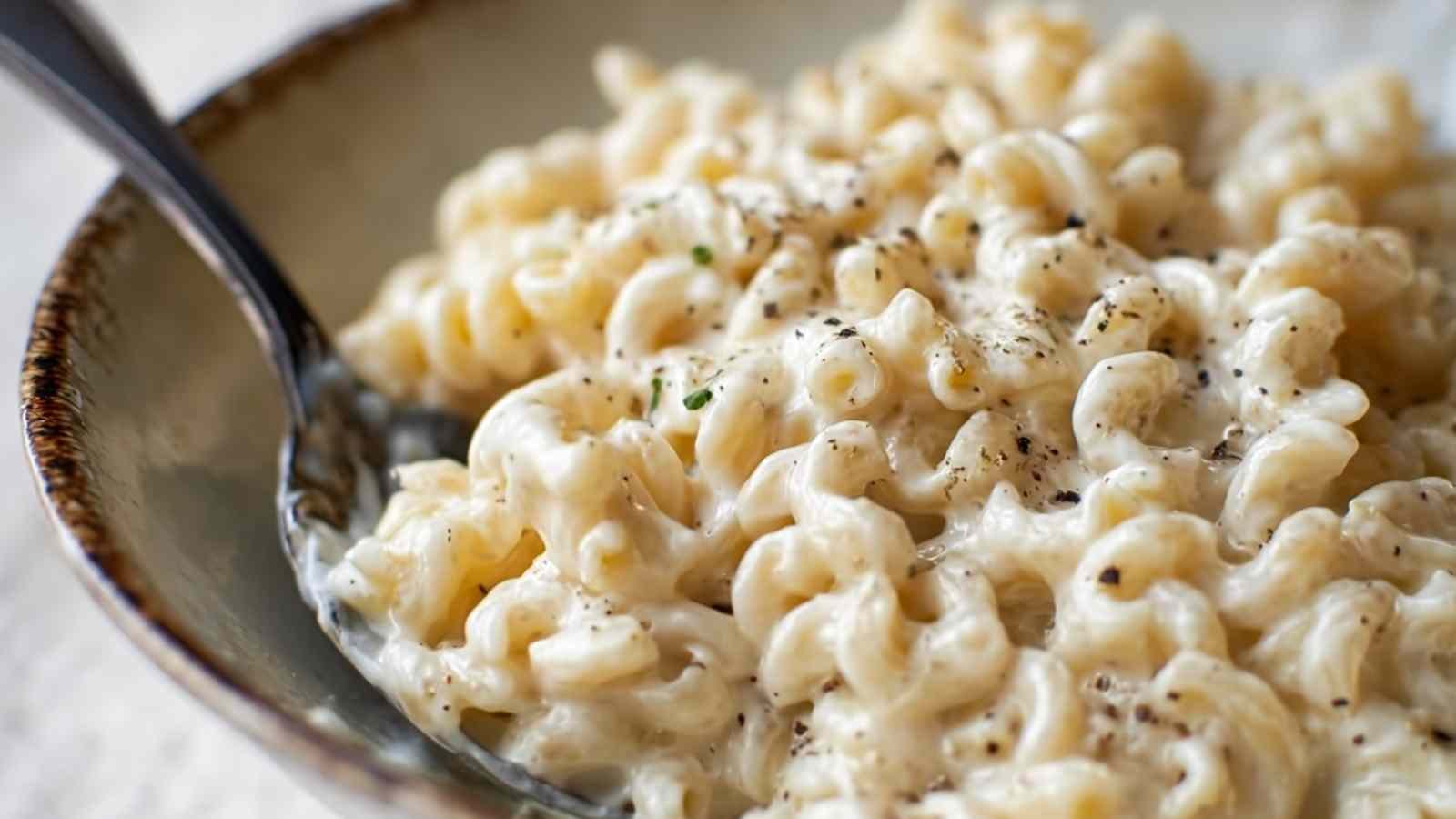
Cottage Cheese Alfredo
Ingredients
Equipment
Method
- Cook pasta according to package directions in well-salted water. Reserve 1 cup pasta water before draining. Drain and set aside.
- Add cottage cheese, whole milk, parmesan cheese, cornstarch, garlic powder, oregano, and basil to a blender. Blend for 60-90 seconds until completely smooth.
- Pour blended mixture into a large pan over low heat. Warm gently for 5 minutes, stirring occasionally, until heated through and slightly thickened.
- Add cooked pasta to the warm alfredo sauce and toss to coat. Add reserved pasta water as needed to reach desired consistency.
- Season with salt and black pepper to taste. Serve immediately topped with extra parmesan cheese and fresh parsley.
Notes
